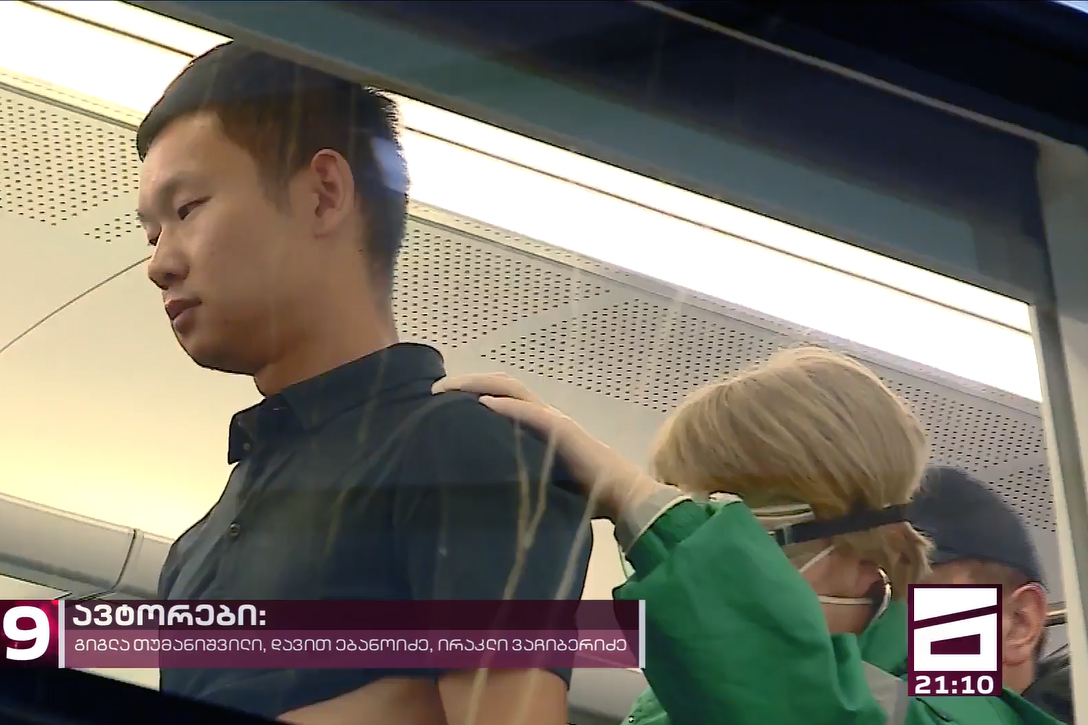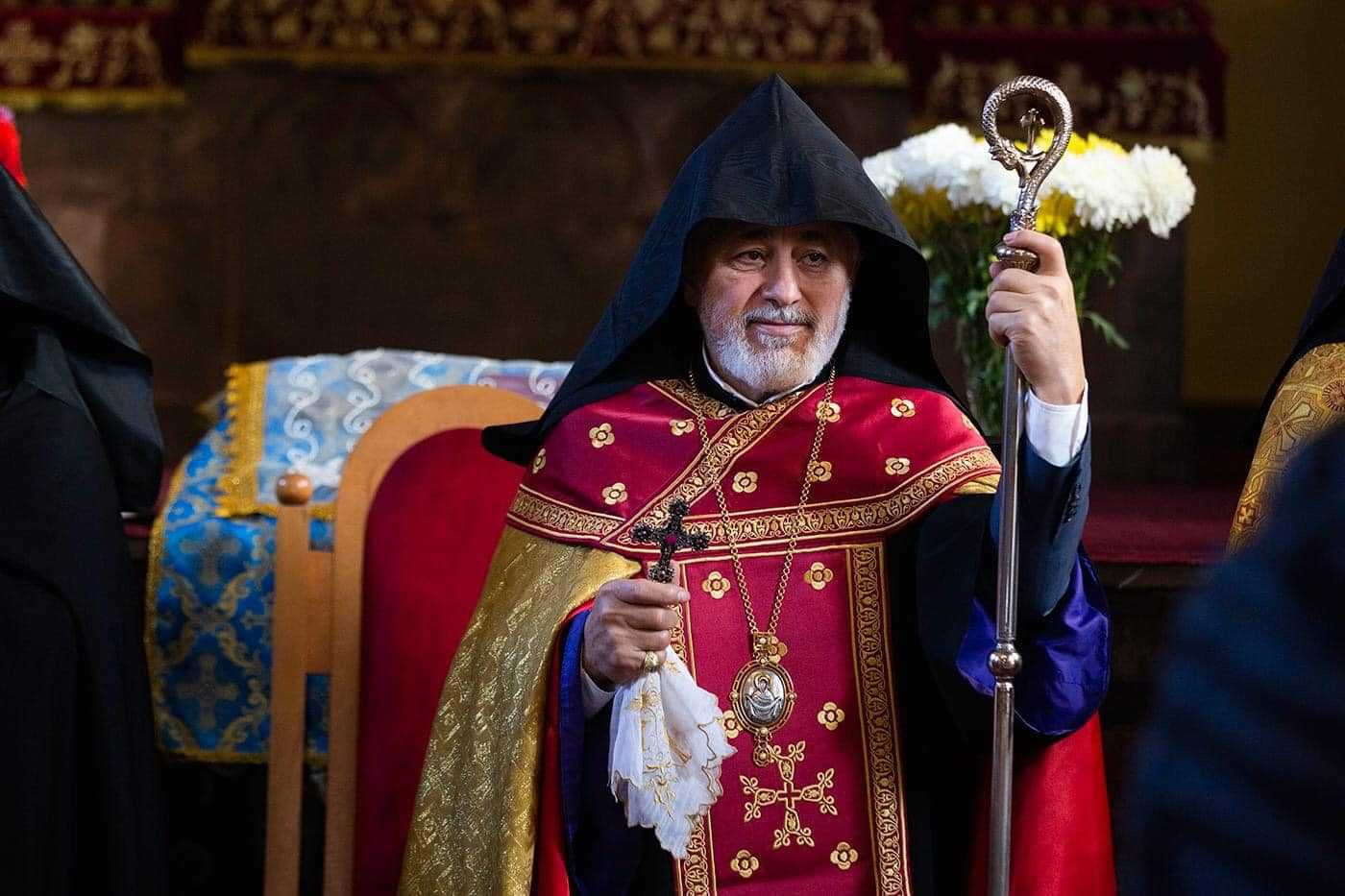
Armenia has announced a two-week closure of its border with Iran and has partially restricted air travel in response to outbreaks of the Coronavirus. Georgia has suspended flights to Iran while the border between Iran and Azerbaijan remains open but with extra precautions.
The Coronavirus, also known as Covid-19, has spread to over 30 countries so far.
According to the World Health Organisation (WHO), there have been 79,000 confirmed cases and nearly 2,600 deaths around the world, with most concentrated in the Chinese city of Wuhan.
The latest large outbreak has been in the Islamic Republic of Iran, which borders both Armenia and Azerbaijan. Afghanistan, Pakistan, Iraq, and Turkey have already closed their borders with the country.
According to Iranian officials, 16 people have died and 95 have been infected across Iran, Reuters reported on 25 February. Later that day, Iranian officials announced that deputy health minister Iraj Harirchi had tested positive for the virus and been placed in quarantine.
Armenia’s border closure ‘with exceptions’
Armenian Prime Minister Nikol Pashinyan outlined the steps the country was taking to prevent the spread of the disease in a Facebook post on 24 February. They included suspending land border crossings with Iran for two weeks and partial restrictions on air travel between the two countries, which would allow citizens of Armenia and Iran to return home.
Though the border will be closed, transport of goods will continue with special inspection protocols for lorry drivers.
The prime minister also stated that Armenia had all the necessary technical and professional resources to give accurate diagnoses of the virus and reaffirmed that there had been no cases so far in Armenia.
The Armenian Embassy in Iran announced that all consular services at the embassy would be suspended starting 23 February.
Prior to the outbreak in Iran, Armenia suspended its visa-free regime with China from 1 February to 31 March. The regime was only implemented the previous month.
Despite Armenia’s precautionary steps, social media in the country has lit up with users worrying about the impact the virus could have on the country, especially as Nowruz celebrations in mid-March see a spike in Iranian tourists coming to Armenia.
Rumours have also proliferated. Last week, posts that falsely claimed several people suffering from the virus had been isolated at the Kapan Medical Centre were shared widely.
In response, Minister of Health Arsen Torosyan posted on Facebook on 22 February that the ministries of health and foreign affairs were working together with their global counterparts to fight against the spread of the disease in a synchronised matter.
‘I would also like to turn your attention to the fact that unnecessary and fake tensions are being created around this situation and people are trying to gain dividends from this, which is unacceptable’, Torosyan wrote.
Edmon Marukyan, the head of the opposition Bright Armenia faction in parliament, who had previously called for the border with Iran to close, wrote on Facebook on 24 February that the border was not truly closed.
‘Cargo lorries can still cross the border’, the post reads. ‘As for stricter controls, we all know that the disease has an incubation period, and it’s very difficult to diagnose it during that time.’
Georgia’s Centre for Disease Control slams ‘xenophobic’ reaction
Georgian authorities halted flights to and from Iran on 23 February, with the exception of planes flying into Georgia to evacuate Georgian citizens.
The country also put in place extra checks on those travelling by land, checking everyone who had visited Iran during the previous two weeks for symptoms of the virus.
On 24 February, the Georgian National Centre for Disease Control and Public Health (NCDC) advised the public to refrain from travelling to China, Iran, South Korea, and northern Italy, unless absolutely necessary.
In a post that day on Facebook, NCDC Deputy Head Paata Imnadze blasted Georgia’s ‘shameful’ media for ‘propagating xenophobia’ leading to two Chinese citizens being targeted with ‘bullying’.
Imnadze was referring to an incident earlier that day in which passengers on a train travelling from Tbilisi to Batumi refused to travel with a Chinese couple, claiming that they had exhibited ‘symptoms of illness’.
The couple was taken away by ambulance but tested negative for the coronavirus.

Imnadze compared the panic to alleged Russian interference in Novi Sanzhary, in Ukraine’s Poltava region, where locals attacked a bus carrying evacuees from Wuhan.
Georgia’s third president, Mikheil Saakashvili, was also accused of xenophobia by several liberal outlets in Georgia for demanding on 30 January that no Chinese citizen ‘set foot on Georgian soil’ as long as the outbreak persists.
Last week, the coronavirus was also a subject of political humour in Georgia, after pro-government protesters who had rallied against opposition European Georgia MP Elene Khoshtaria outside her office in Tbilisi hid their faces from the media, claiming they were ‘infected with coronavirus’.
Giorgi Kandelaki, another MP from European Georgia, demanded, apparently in jest, that the Georgian Health Minister check the protesters for the virus and quarantine them if necessary.
With mounting public concern over the spread of the virus, the Lugar Laboratory in Tbilisi started giving rapid diagnostic tests on 3 February, ending the need to send samples outside of Georgia.
So far, 24 people in the country have been hospitalised on suspicion of possibly having the virus, but no cases have been confirmed.
Azerbaijan: ‘no reason for closure of the border’
The Cabinet of Ministers of Azerbaijan reported on Monday that a special government commission chaired by the Prime Minister had been created to address the threat posed to Azerbaijan by the coronavirus.
The government said preventive measures had been taken at all border points in Azerbaijan, including airports. Passengers arriving are being subject to medical checks regardless of their country of origin, they said.
The government also urged citizens to temporarily postpone visits to Iran unless absolutely necessary.
In a 24 February press release, Azerbaijan Airlines, the country’s national carrier, stated that they ‘do not plan to make changes to the current flight schedule to Iran’. They added that they had strengthened sanitary controls on flights arriving from Iran and that ‘additional measures will be taken in this direction’.
No cases of coronavirus have been confirmed in Azerbaijan.
On Tuesday afternoon, eight people were hospitalised on suspicion of having contracted the virus — seven Iranian nationals and one Azerbaijani citizen. All had recently visited Iran.
Later that day, 23 more people who had recently visited Iran were hospitalised for testing.
The State Border Service stated on Monday that preventive measures had been strengthened in districts with border crossings with Iran. A spokesperson told news agency Trend on 25 February that mobile hospital cars had been sent to those districts.
Aslan Pashayev, Deputy Head of the Southern Customs Office, told news agency APA that there was no reason for a complete closure of the border with Iran.
Online, many Azerbaijani social network users have expressed discontent with this decision, and have called for the borders with Iran to be closed.
Despite assurances from the government that the country had ‘sufficient medical supplies to protect us from the epidemic’, social media users complained of an increase in price and shortage of medical masks in pharmacies.
A spokesperson of the Ministry of Economy told the APA that both the shortage and price increase was because the masks were imported from abroad where they are increasingly in short supply.
Meanwhile, Turkey has closed the border with Nakhchivan, leading to a rise in food prices there, BBC Azerbaijan reported.











